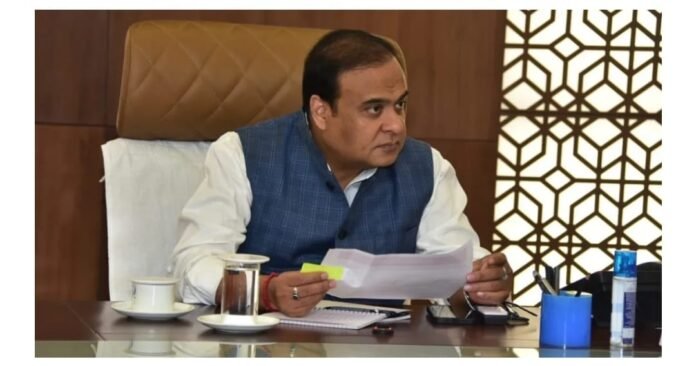In a significant departure from tradition, the customary practice of felicitating the Assam Chief Minister with gamosas and flower bouquets during official programs will be discontinued. This decision marks a shift in the way the state honors its leaders and showcases a modern approach to ceremonial protocols.
The gamosa, a revered handwoven cotton towel, has long held cultural significance in Assam. It symbolizes respect, hospitality, and goodwill in the region. Similarly, presenting flower bouquets has been a customary gesture to extend warm wishes and felicitate dignitaries. However, as times change, the need to adapt and evolve cultural practices has come to the forefront.
The decision to cease the gamosa and flower felicitation was made with the intention of embracing new traditions that align with the contemporary spirit of Assam. While respecting the rich heritage of the state, this move seeks to create a more inclusive and diverse approach to honoring the Chief Minister.
The new protocols for honoring the Chief Minister will be developed in consultation with cultural experts, community leaders, and government officials. The aim is to establish practices that reflect the ethos of Assam while embracing the dynamic nature of a rapidly evolving society.
The replacement for the gamosa and flower bouquets is expected to be a thoughtful combination of symbols and gestures that better represent the aspirations and values of the people of Assam. The new traditions will strive to encapsulate the essence of the state’s cultural heritage, while also acknowledging the changing times and the diverse communities within Assam.
This decision should not be perceived as a dismissal of the significance of gamosas or flowers in Assamese culture. Instead, it reflects a conscious effort to adapt traditions to suit the needs and sensibilities of the present era. The intention is to foster an environment that respects and celebrates Assam’s cultural heritage while embracing progress and inclusivity.
As the new protocols take shape, it will be important for the citizens of Assam to support and participate in these evolving traditions. By doing so, they will play an integral role in shaping the future ceremonial practices that honor their leaders, showcase their rich heritage, and symbolize the unity and progress of the state.
Change, albeit sometimes challenging, is an essential aspect of societal growth. The decision to replace the gamosa and flower bouquets with new traditions for felicitating the Assam Chief Minister reflects a forward-looking approach. It aims to create a more inclusive and representative ceremony that honors the state’s leaders while embracing the spirit of a diverse and dynamic Assam.


